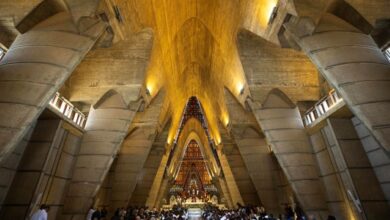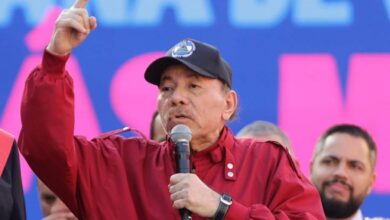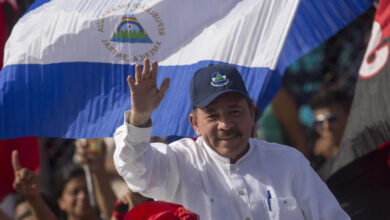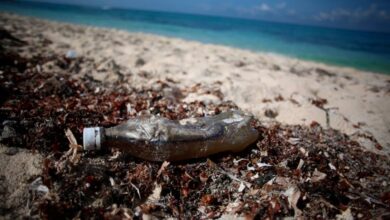Nicaragua: This Is the Eccentric Restriction of Daniel Ortega to Stay in Power
Recently, the government of Daniel Ortega has restricted the use of audio and video equipment by tourists in order to regulate the content that is shared on social networks and the mass media about the conflict between the government and the protesters.

Photo: Flickr-Ecuador Foreign Ministry
LatinAmerican Post | David García Pedraza
Listen to this article
Leer en español: Nicaragua: esta es la excéntrica restricción de Daniel Ortega para mantenerse en el poder
The Nicaraguan Executive has been carrying out various restrictions whose purpose is to keep the population under surveillance and control to avoid demonstrations that alter the government stability that President Daniel Ortega has maintained since 2007. One of the most recent restrictions is directed towards tourists, by not allowing them to enter audio and video equipment. The regime considers that they affect "the image of the country," since they can record situations that make the actions that Ortega has taken to maintain control on the streets of Nicaragua frowned upon.
The rule, which came into force immediately, stipulates that tourists can only enter a photographic object and a long-range lens. However, these must be endorsed by the National Cinematheque of Nicaragua before the trip. In addition, the public force will be watching what the tourists record. It is a measure that further intimidates people who want to know the country, with no intention of discrediting the Central American nation.
Despite the criticism that the measure has caused, the Ortega government has declared that these restrictions, especially the prohibition of night vision binoculars, are in accordance with law N510. This law contemplates the regulation of firearms, ammunition, explosives, and other related materials.
More Actions by Ortega Against the Protesters
The restriction of audio and video equipment is just one of several limitations that Ortega has legalized since 2018, the year that the enormous discontent with his government began. One of the first acts that began to show Ortega's radical face was the expulsion of a Colombian and a Salvadoran priest in 2018. The reason was that the two religious had expressed various statements against Ortega's actions as president. Added to this is the weight of the bad relations between the Catholic Church and the Sandinista current for more than 40 years.
It may interest you: Nicaragua: The Conflict Between Daniel Ortega And the Catholic Church Grows
With the arrival of the COVID-19 pandemic, the protests from Managua diminished due to the health emergency. However, 2021 marked the resurgence of activity against the Ortega regime at the juncture of the presidential elections, in which there was no guarantee for the opposition. The situation reached such a point that the presidential candidates who had a government plan different from the Sandinista front were arrested.
However, the greatest repression was carried out again by the Catholic Church. During 2022, Ortega ordered the closure of several Catholic radio stations, in addition to prohibiting several processions related to Christianity in Rome, (such as the devotion to the Virgin of Fatima) and the expulsion of some religious. The most striking case is that of the 18 nuns of the Missionaries of Charity order who were expelled.
The press has not emerged unscathed from the restrictions from the Executive. In October 2022, the Legislature, which is close to Ortega, approved a law in which all audiovisual material generated on Nicaraguan land must be approved by the National Cinematheque for distribution. Also, the Law gives the government freedom to prohibit and restrict content that it does not deem appropriate to be in national circulation.
The opposition, despite the government control, finds spaces to raise their voices in the international media, whose reporters managed to enter Nicaragua. It is quite a feat due to the censorship reforms that will visibly affect tourism in the Central American nation. In fact, by the end of 2022, tourism registered a drop of 19.2% compared to the first half of the same year.
The filmmaker Ricardo Zambrana expresses that what has been reformed in Law 909 is an attack on the freedom of independent creation, which stipulates that permission must be requested to record and be subject to approval by the National Cinematheque. This is an entity that is in the hands of Idania Castillo, former daughter-in-law of Daniel Ortega.
The church, and those close to it, have remained firm in their position against the acts of Daniel Ortega. An example is Patricia Molina, lawyer and member of the Observatory for Transparency and Anti-Corruption and writer of the book 'Nicaragua, "A Persecuted Church". In the text, she recounts about 200 attacks that this organization has suffered from 2018 to 2022 from the Ortega regime.
At the international level, the United States, the European Union and the UN have declared that they are against the management of Ortega and his allies. However, despite the decisions to deny Ortega supporters entry to their nations and freeze their assets, these have not been of great help in reducing the repressive behavior of the Executive.
Similar Actions from Other Latitudes
Nicaragua has the potential to become the North Korea of the Western Hemisphere, since the use of video and audio equipment is also restricted in the Asian country. In addition, in that country you can only take photos in places approved by the Pyongyang regime, as the photographer Carl De Keyzer relates in this reel for the BBC.
Lately, Qatar has also been the scene of contention over the ban on the press from disseminating images. Added to this is the disagreement with the restriction on drinking alcohol, alluding to the religious doctrine of the Arab nation. For its part, Malaysia prohibits the use of yellow in clothing, because on several occasions the protesters used this color to demonstrate their discontent with the prime minister's administration. Closing this list, one of the most hermetic countries is Turkmenistan, as it prohibits the circulation of black vehicles due to the whim of its president and his obsession with the color white. Even in the capital, Ashgabat, this color predominates in their buildings.




